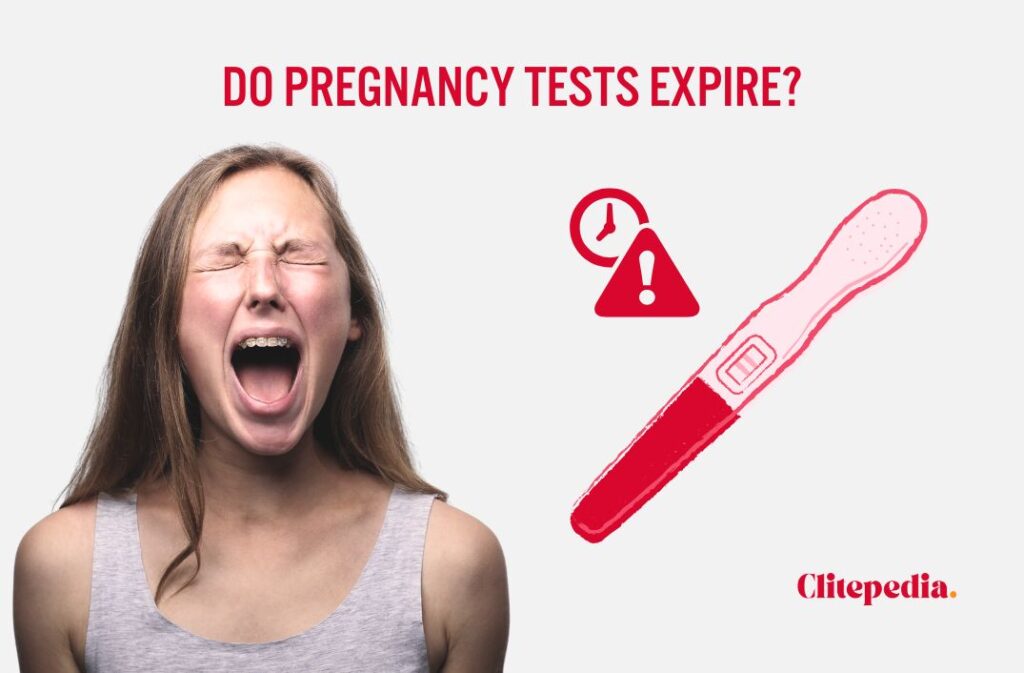
Ah, the eternal question: Is this PMS, or is my uterus planting the seed for a future tiny human? If you’re suddenly Googling “PMS vs pregnancy symptoms” at 3 AM with a mix of curiosity and panic, you’re not alone.
Mother Nature has a twisted sense of humor, and those early pregnancy signs can mimic your typical pre-period symptoms so closely, you’d swear they were in cahoots.
This guide is here to rescue you from overanalyzing every cramp, craving, and twinge. We’ll break down the similarities, spotlight the differences, and help you untangle the mystery of what your body is trying to tell you.
Whether you’re hoping for a bun in the oven or just praying for a break from bloating, we’ve got the answers.
PMS vs Pregnancy: The Plot Thickens with Mutual Symptoms
Let’s start with the overlap, because your body, in its infinite wisdom, loves to keep you guessing. Whether you’re waiting for Aunt Flo or possibly pregnant, here are the symptoms that love to play both sides:
- Sore breasts: Whether it’s PMS or pregnancy, your chest might feel like it’s rebelling. With PMS, the soreness typically fades once your period starts, while pregnancy keeps the tenderness going thanks to rising hormone levels.
- Mood swings: Hormones don’t care if you’re gearing up for menstruation or motherhood, they’ll have you crying over your cat’s paws either way.
- Fatigue: Exhaustion is another shared symptom. PMS might leave you dragging in the days before your period, while early pregnancy fatigue can feel like a full-body shutdown.
- Cramps: Those familiar twinges could signal PMS or early pregnancy. The difference? Pregnancy cramps are often milder and lower in your abdomen.
- Bloating: It doesn’t matter if it’s PMS or pregnancy; either way, your jeans might feel suspiciously snug.
While these symptoms can drive you to distraction, they’re not conclusive. Stay tuned, there are more clues ahead!
Symptoms That Scream ‘Baby on Board!’
So what sets pregnancy apart? Here’s some of the symptoms that PMS wouldn’t dare bring to the table:
- Nausea and vomiting: Morning sickness (which isn’t limited to mornings, yay) is one of the hallmark signs of pregnancy. If your stomach’s doing backflips, this isn’t your average PMS.
- Heightened sense of smell: Can’t stand the scent of your favorite candle, or suddenly notice your coworker’s coffee from across the room? Pregnancy hormones can give you the nose of a bloodhound.

- Frequent urination: If you’re hitting the bathroom more than usual, it’s likely your uterus expanding and pressing on your bladder, a symptom PMS doesn’t deliver.
- Food aversions or cravings: Sure, PMS has you reaching for chocolate, but pregnancy cravings (and aversions) can be oddly specific. Tuna with pickles, anyone?
- Darkening areolas: One of the more subtle clues is a change in your nipples. If they’re getting darker and larger, that’s a sign your body’s prepping for a baby.
The key here is duration. PMS symptoms typically fade once your period starts, while pregnancy symptoms persist and often intensify. If your symptoms are sticking around or escalating, it’s time to grab a test.
Spotting: Implantation Bleeding or Just an Early Period?
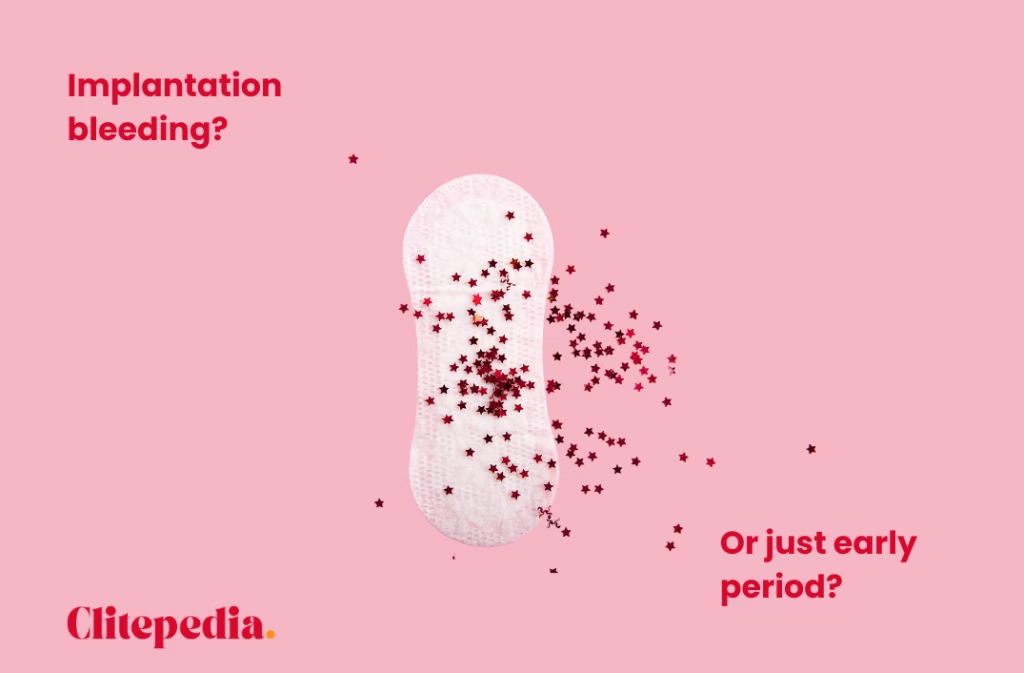
Spotting can be one of the trickiest symptoms to decipher. Implantation bleeding happens when a fertilized egg attaches itself to the uterine lining, causing light spotting. Here’s how to tell the difference:
- Implantation bleeding: Light, pinkish or brown, and typically lasts 1–2 days. It’s more of a “smudge” than a “flow.”
- Menstrual bleeding: Starts light but ramps up to a heavier flow, often accompanied by cramps that signal your uterus clearing itself out.
Timing is everything. Implantation bleeding usually occurs 6–12 days after ovulation, which is just a little earlier than when your period would typically start.
If you notice spotting but no full-on period and you’re feeling other pregnancy symptoms, it’s worth taking a test.
Still confused? Keep a diary of your symptoms, including the timing and intensity. This can help you figure out if your spotting is a one-off or part of a bigger picture.
The Great Debate: PMS vs Pregnancy
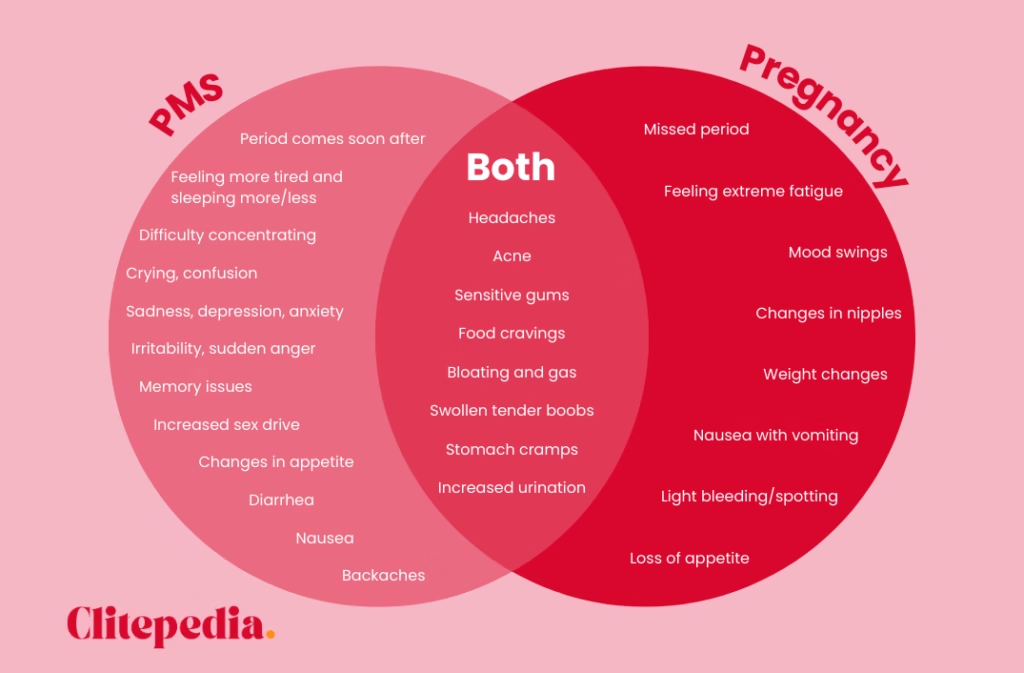
The ultimate showdown! When you’re trying to figure out what’s happening in your body, it helps to compare PMS and pregnancy side by side:
| Symptom | PMS | Pregnancy |
| Breast changes | Sore, heavy | Darkening areolas, tingling |
| Cramps | Standard pre-period pain | Milder, lower abdomen discomfort |
| Mood swings | Sad, irritable | Extreme highs and lows |
| Fatigue | General sluggishness | Overwhelming tiredness |
| Bleeding | Period flow starts | Light spotting only |
The biggest difference is in the duration and intensity. PMS symptoms usually subside once your period starts, while pregnancy symptoms are just getting started.
If you’re still unsure, the best way to end the guessing game is to take a pregnancy test.
No PMS Symptoms – Could I Be Pregnant?
Let’s address the big fat uninvited elephant in the room:
If you’re typically plagued by PMS symptoms but this month you’re just sailing through life with not a cramp in sight, does that mean you’re pregnant?
Not necessarily, but it’s worth keeping an eye on.
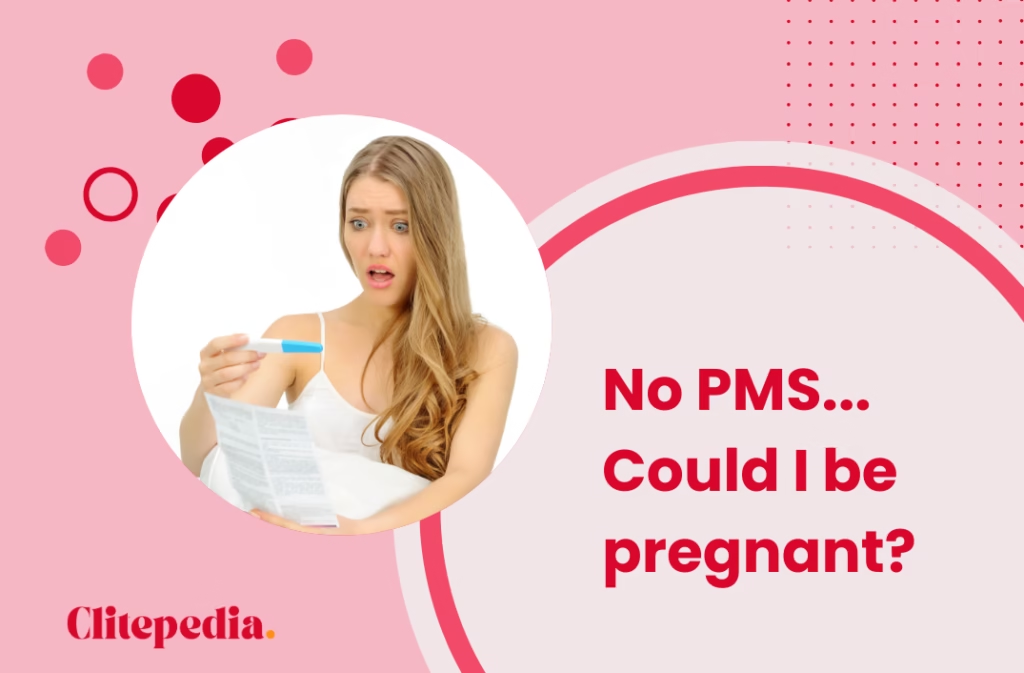
Sometimes, your cycle just changes. Stress, significant lifestyle shifts (like a new diet or exercise routine), or even the lunar cycle (if you’re into that kind of thing) can throw your PMS symptoms off-kilter.
It doesn’t mean you’re expecting, but it also doesn’t rule it out.
On the flip side, if you’re actively trying to conceive, you might start second-guessing every tiny change, or lack thereof, in your body.
The truth is, some women don’t experience noticeable PMS or pregnancy symptoms at all in the early stages. Hormones are sneaky little devils, and how your body responds can vary widely.
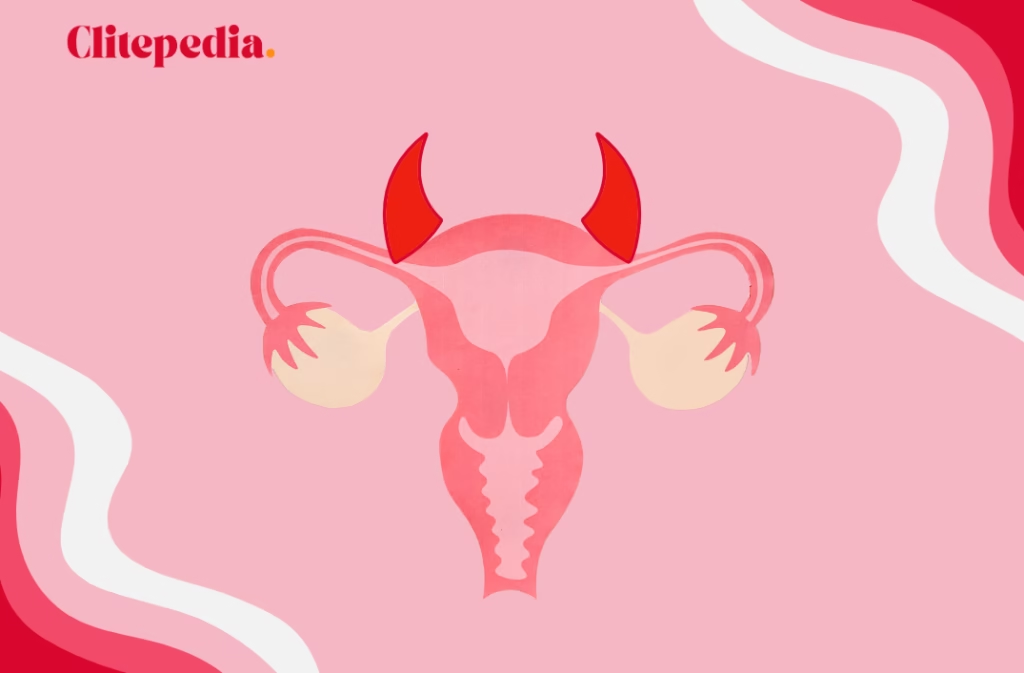
If your period doesn’t show up on time, that’s your cue to take a pregnancy test. Even if you’re symptom-free, a missed period is the most reliable early sign of pregnancy.
Bottom line: Skipping PMS symptoms doesn’t automatically mean you’re pregnant. But it’s worth paying a little extra attention to your cycle and investing in a trusty pee stick if things seem amiss.
Pregnancy Symptoms 101: What to Watch For
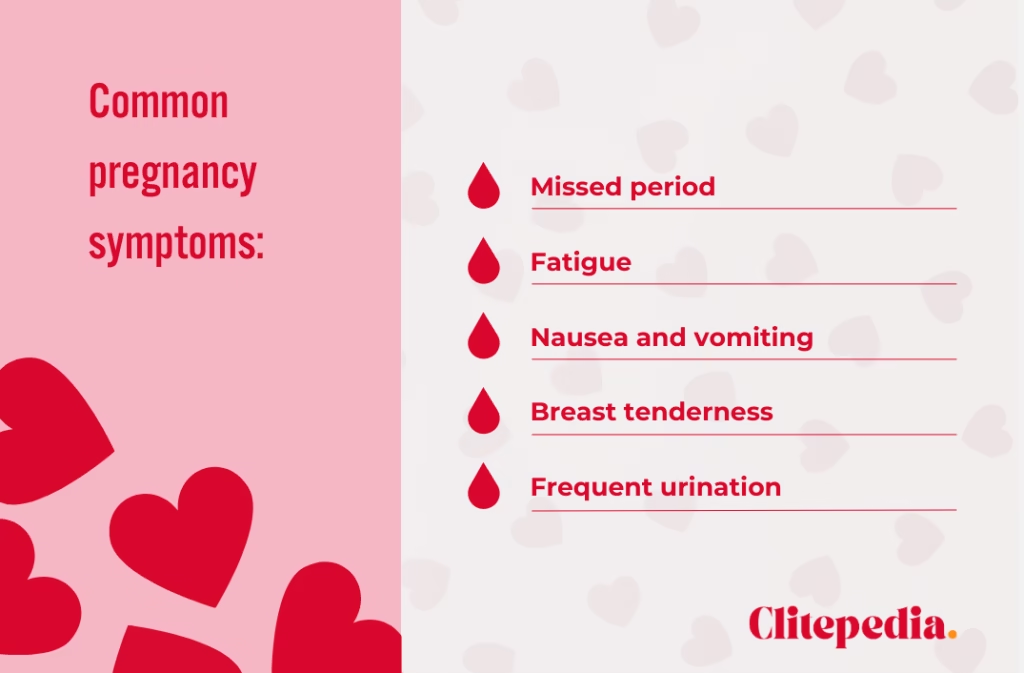
So, what are the big signs that scream “you’re pregnant”? Here’s a roundup of the usual suspects:
- Missed period: This one’s the gold standard. If your period is MIA, it’s time to consider that you might be pregnant.
- Fatigue: Early pregnancy fatigue isn’t just being tired; this is some next level stuff.
- Nausea: Often (but not always) accompanied by vomiting, morning sickness can strike at any time of day.
- Breast tenderness: Your boobs might feel unusually tender, heavy, or even tingly.
- Frequent urination: Pregnancy hormones increase blood flow to your kidneys, so you’ll find yourself making more bathroom trips than usual.
These symptoms often appear within the first few weeks of pregnancy, but they’re not exclusive to pregnancy. If you’re experiencing several at once, a pregnancy test is your next step.
The Sneaky Ones: Lesser-Known Pregnancy Signs
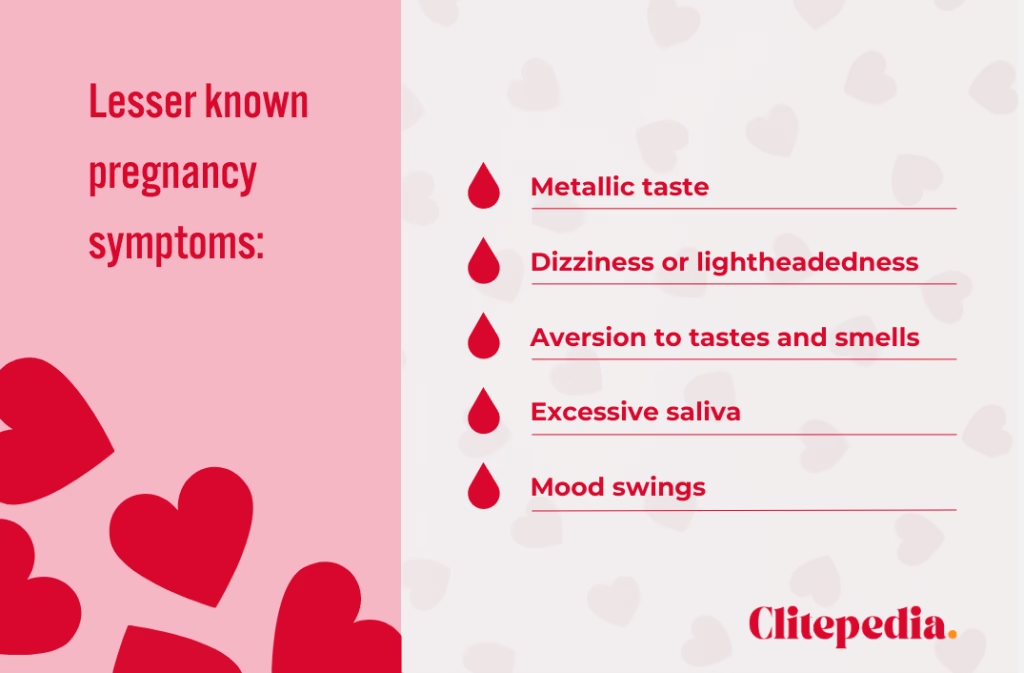
Pregnancy doesn’t just stick to the obvious signs; it loves to keep you guessing with some lesser-known symptoms that might catch you off guard.
- Metallic taste: If it suddenly feels like you’ve been licking the inside of an old coin purse, that’s your hormones playing games with your taste buds.
- Dizziness or lightheadedness: A drop in blood pressure or blood sugar can make you feel woozy, especially in early pregnancy.
- Aversions to certain foods or smells: Can’t stand the thought of your favorite coffee or that go-to pasta dish? Pregnancy might be behind your sudden distaste.
- Excessive saliva: It’s not glamorous, but increased saliva production is a real symptom, and yes it’s as weird as it sounds.
- Mood swings: Not your garden-variety PMS moodiness. Pregnancy hormones can turn you into a full-on emotional rollercoaster.
While these symptoms are less common, they’re worth noting. If you’re experiencing some of these alongside more classic symptoms, a pregnancy test is definitely in order.
How Early Can Symptoms Start?
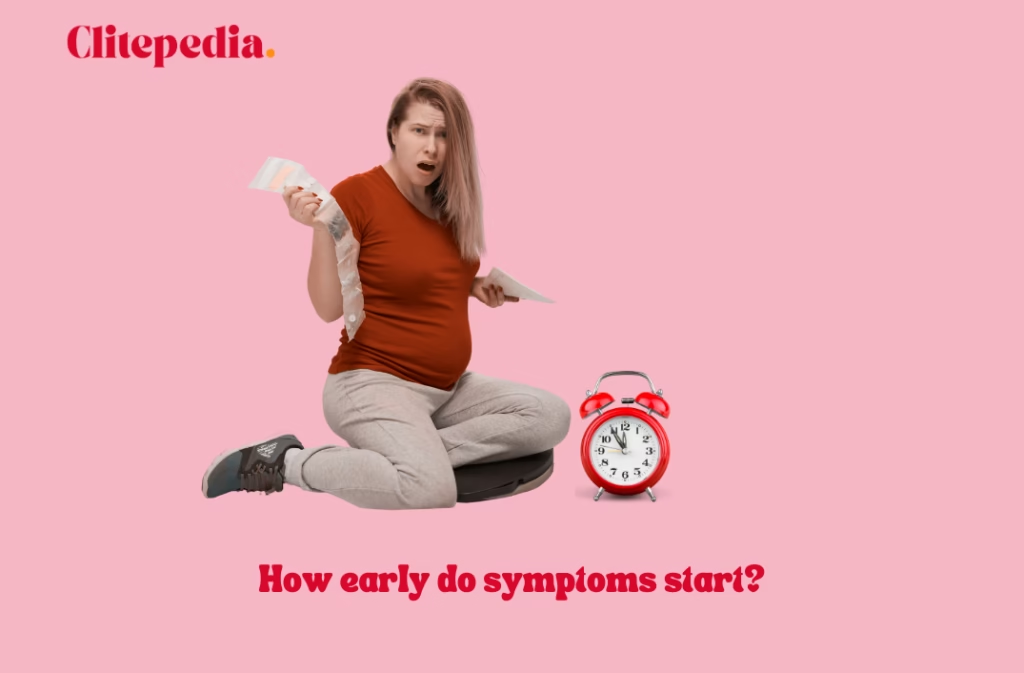
Here’s the million-dollar question: How soon can you start feeling those telltale pregnancy signs?
Pregnancy symptoms can appear as early as 6–10 days after ovulation, around the time implantation occurs.
This is when the fertilized egg attaches itself to the lining of your uterus, triggering hormonal changes that can cause symptoms like fatigue, mild cramping, or spotting.
However, not everyone feels symptoms this early. Some women don’t notice any changes until they miss their period, while others feel “off” almost immediately
Every body is different, and symptoms can vary widely from one pregnancy to the next.
The key is to listen to your body but also be patient. If you suspect you’re pregnant but it’s too early for a test to confirm, track your symptoms for a few days.
Once your period is officially late, take a test to get a clearer picture.
Feeling Pregnant Before a Missed Period: Myth or Reality?
Is it really possible to feel pregnant before missing your period? The short answer: yes, but don’t rely on it as a definitive sign.
Some women are more in tune with their bodies and notice subtle changes right after conception. Others might attribute those same changes, like mild cramping or fatigue, to PMS or other factors.
Symptoms like nausea, heightened smell, or unusual cravings can appear very early in pregnancy, but they’re not exclusive to pregnancy.
The real deal-breaker is your period. If it doesn’t show up when expected, that’s your cue to take a pregnancy test.
Until then, it’s all just speculation (but hey, speculation is half the ‘fun’, right?).
False Alarms: Pregnancy Symptoms Without Being Pregnant
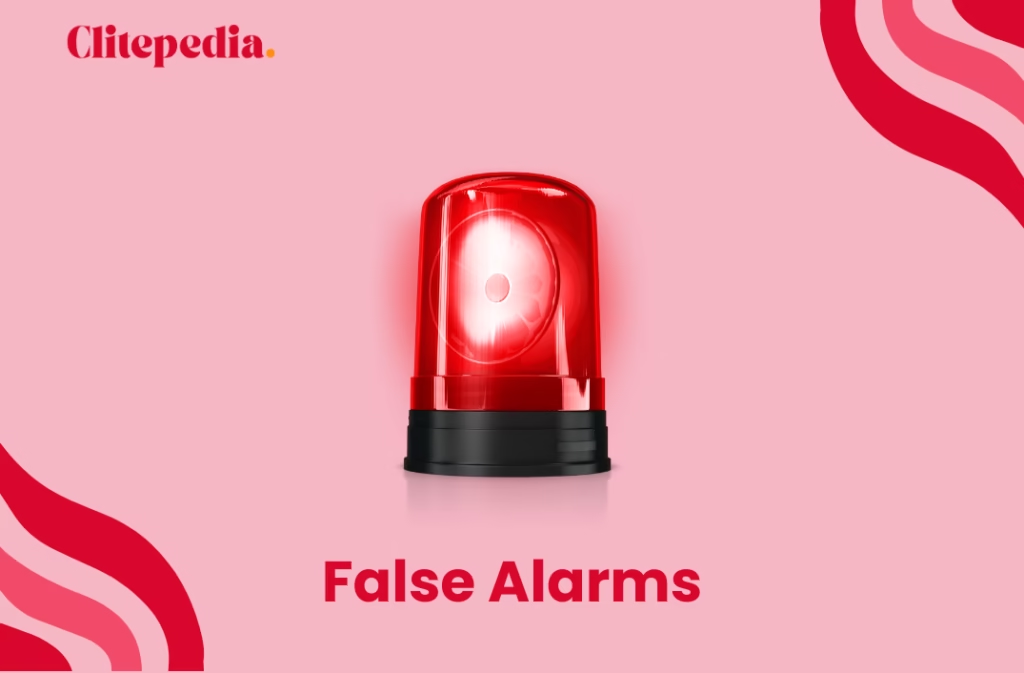
Here’s a plot twist: You can experience pregnancy-like symptoms without actually being pregnant. It’s frustrating, confusing, and just plain unfair, but it happens.
Stress, hormonal imbalances, and even some medications can mimic pregnancy symptoms. For example:
- Stress can delay your period and cause symptoms like fatigue or nausea.
- Hormonal shifts can lead to sore breasts or mood swings.
- Certain medications, including birth control or fertility treatments, might make you feel pregnant when you’re not.
If you’re experiencing symptoms but tests keep coming back negative, consider seeing a doctor. They can help rule out other causes and give you peace of mind.
How Soon Can I Take a Pregnancy Test?
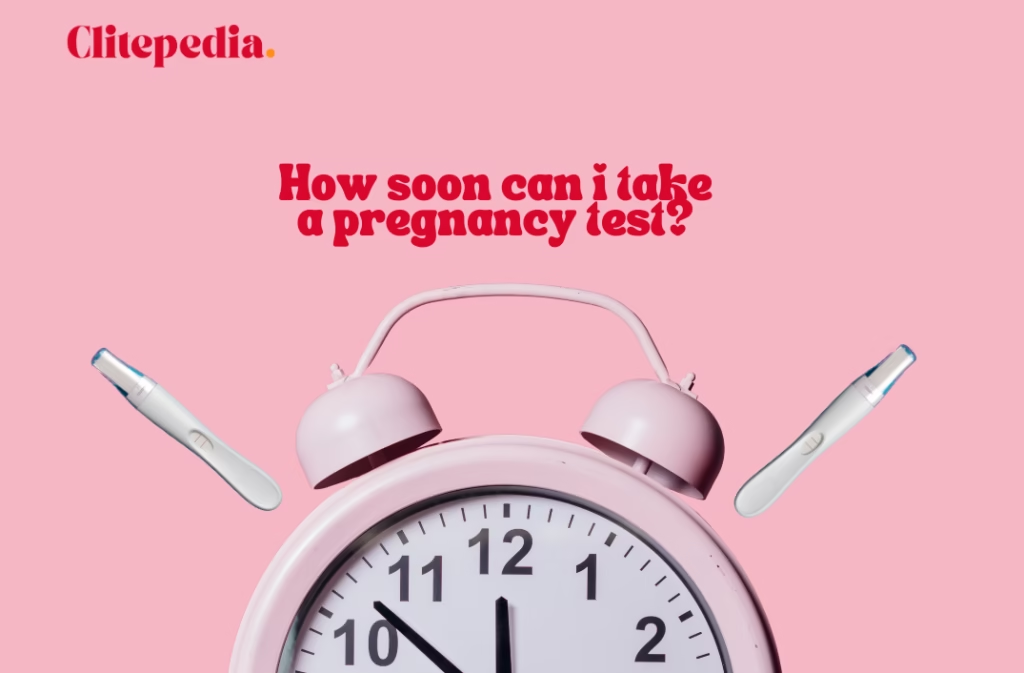
Pregnancy tests are most accurate starting the day after your missed period. If you’re impatient (and who isn’t?), some early-detection tests claim to work up to 6 days before your period is due.
Just keep in mind that testing too early can lead to false negatives because your hormone levels may not be high enough yet.
If you get a negative result but still suspect pregnancy, wait a few days and test again.
For the most accurate results, test your first pee of the day – it’s more concentrated, making it easier to detect pregnancy hormones.
I’m Still Not Sure If I’m Experiencing PMS or Pregnancy Symptoms. What Should I Do?
If you’re still feeling unsure about whether you’re dealing with PMS or pregnancy, don’t worry, you’re not alone. The early symptoms can be confusing and outright frustrating.
Here’s your action plan to help you get clarity:
- Track Your Symptoms: Start by noting down what you’re experiencing. Keep track of any cramps, sore boobs, mood swings, fatigue, nausea, or spotting. Pay attention to when these symptoms appear, how long they last, and whether they intensify or fade.
- Know Your Cycle: Understanding your menstrual cycle can help you figure whether your symptoms are run of the mill PMS or something new. If you’re late by more than a few days and your symptoms feel different from your usual PMS, it’s worth investigating further.
- Take a Pregnancy Test: A home pregnancy test is the easiest way to rule out (or confirm) pregnancy. If it’s negative but your period doesn’t arrive, retest in a few days.
- Listen to Your Body: Are you feeling significantly “off” or experiencing symptoms that don’t align with your usual PMS? Trust your intuition.
- Consult a Doctor: If you’re still unsure after testing or if your symptoms are severe (e.g., intense cramps, heavy bleeding, or debilitating nausea), schedule an appointment with your doctor. They can perform a blood test or ultrasound to provide definitive answers.
The key is not to stress (easier said than done, we know). Your body will give you more clues over time, and with a little patience, you’ll have the answers you need.
When to Contact a Doctor
While most PMS and early pregnancy symptoms are manageable at home, there are times when it’s essential to seek professional help. Here’s when to pick up the phone:
- Unusual Symptoms: If you’re experiencing something out of the ordinary, like severe pain, excessive spotting, or nausea that lasts a while, it’s time to get booked in with the doctor.
- Heavy Bleeding: Heavy (for you, you know what is your usual flow) or prolonged bleeding could indicate something more serious, like a miscarriage or a hormonal imbalance. Don’t ignore it.
- Positive Pregnancy Test: If you’ve tested positive, it’s important to schedule a prenatal appointment to confirm the pregnancy and start your care plan.
- Negative Tests and Missed Period: If you’ve missed your period but keep getting negative tests, a doctor can help determine what’s going on.
- Persistent Symptoms: Symptoms like extreme tiredness, stomach pain, or dizziness shouldn’t be ignored, even if they seem mild at first.
Remember, it’s always better to err on the side of caution. Your health is worth it, and your doctor is there to help you navigate this confusing time with confidence and care.
Pam’s Thoughts: Trust Your Body, but Confirm with Science
Deciphering whether you’re dealing with PMS or pregnancy can feel stressful to say the least.
But the good news is that your body will eventually give you the answer, it just takes a little patience to coax it out of her.
Whether you’re hoping for a positive test or just eager for your period to arrive so you can move on with your life, don’t let the waiting game drive you bonkers.
Track your symptoms and get yourself a pregnancy test when the timing is right. And remember, your doctor is your best resource for peace of mind.
No matter the outcome, you’ll be better off for knowing now.
FAQs
How can you tell if you are pregnant before your period?
You might notice early signs like nausea, fatigue, sore breasts, or spotting, but these symptoms can be misleading. The only way to know for sure is to take a pregnancy test once your period is late or consult your doctor.
How early do pregnancy signs start?
Some women experience symptoms as early as 6–10 days after ovulation, around the time of implantation. However, many don’t notice significant changes until after they miss their period.



